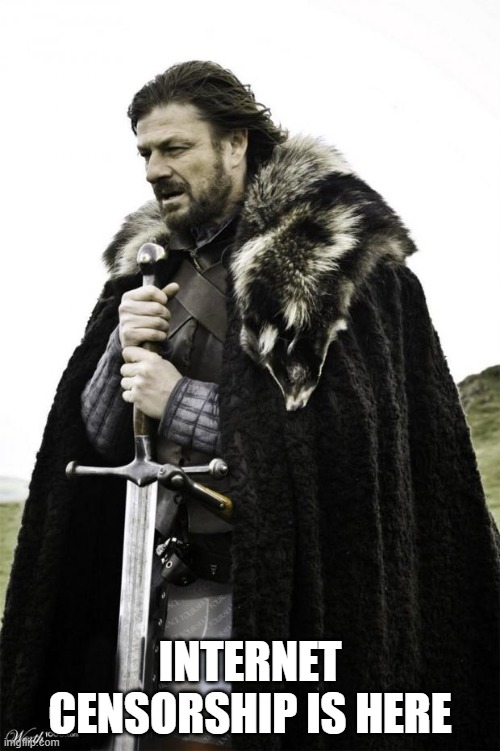This is one of the many AG enforcement actions against social media for [reasons]. In this particular claim, the Indiana AG alleges that TikTok coaxed users to install its app on false pretenses, including deceptive omissions about its ties to China. The lower court dismissed the case. The appeals court revives it.
Statutory Application to “Free” Exchanges
The lower court held that the state consumer protection statute didn’t apply to TikTok because the app was downloadable for free, so there was no statutorily regulated “sale.” The appeals court disagrees: “the plain and ordinary definition of the word ‘sale,’ which is not otherwise defined in the DCSA, includes any consideration to effectuate the transfer of property, not only an exchange for money. It is undisputed that TikTok exchanges access to its app’s content library for end-user personal data.” By definition, every contract of every type involves a bilateral exchange of contract consideration, so this logic suggests that every contract represents a statutory “sale”?
Fact v. Opinion
The lower court held that some of TikTok’s alleged misrepresentations were puffery. The appeals court reverses:
the State’s amended complaint in Cause PL-400 alleges that TikTok acted in ways that caused the nature of the content available on its app to be expressly or implicitly misrepresented in various app stores; that TikTok either expressly or implicitly misrepresented its enforcement of its Community Guidelines; and that TikTok either expressly or implicitly misrepresented the effectiveness of its Restricted Mode. The State further alleged that all of those acts were done in order to induce parents and younger audiences to download and access TikTok’s app. And, TikTok’s arguments on appeal notwithstanding, we conclude that reasonable persons within Indiana could have relied on any of those alleged express or implied misrepresentations in deciding whether to download and access TikTok’s app.
The State’s amended complaint in Cause PL-401 alleges that, in its privacy policy, TikTok has omitted information on which a reasonable person would likely rely in deciding whether to download and access the app—namely, that the government of China would have access to TikTok’s collected personal data. The State also alleges that TikTok affirmatively made false public statements that the government of China does not have that access, and that TikTok’s allegedly false public statements were made to induce reasonable persons in Indiana to download and access its app. And the State alleges that TikTok has omitted informing possible end-users that its in-app internet browser will enable TikTok to circumvent the end-user’s privacy settings in his or her default internet browser, which information the State contends reasonable persons in Indiana would likely rely on in deciding whether to download and access the app. We agree with the State that reasonable persons might have relied on those representations and omissions
This is a good example of the [reasons] mentioned at the top. Look closely at exactly how the court explains why TikTok made statements if facts, not opinion, and those statements were material to consumers where materiality is required. “We agree with the state” isn’t exactly the most transparent or rigorous approach to parsing each statement and showing why it satisfied the statutory requirements.
In the wake of this ruling, 14 state AGs launched similar complaints against TikTok. Assuming that Congress didn’t successfully ban TikTok from the US, these battles will play out for years and likely reach the Supreme Court.
Jurisdiction
The assertion of personal jurisdiction over TikTok in Indiana isn’t that interesting, but it was jarring to see the court in 2024 citing Zippo favorably. Talk about a blast from the past. And not really necessary at all.
TikTok’s contacts within Indiana are well beyond the “minimum” needed to satisfy due process. TikTok has millions of end-users of its app within Indiana. Its engagement with those end-users is neither passive nor fleeting—TikTok uses the internet, to which its app is connected, to knowingly and repeatedly transmit data to and from each of those millions of Indiana end-users each and every hour of each and every day.
Further, TikTok has purposefully availed itself of those Indiana contacts. It has invoked those contacts as part of its business model—the exchange of access to TikTok’s content library for end-user personal data, which TikTok collects and monetizes. Indeed, as set forth above, TikTok reported $46 million in Indianabased income in tax year 2021….
TikTok’s contacts within Indiana are not a close call under the Due Process Clause
Case Citation: State v. TikTok, Nos. 23A-PL-3110 and 23A-PL-3111 (Ind. Ct. App. Sept. 30, 2024)
Some Related Posts on Efforts to Ban TikTok
* Anti-TikTok Political Stunts Fail in Montana and Indiana Courts
* Court Again Enjoins Anti-TikTok Executive Order–TikTok v. US
* Another Court Rejects Trump’s Censorial Anti-TikTok EO–Marland v. Trump
* Court Enjoins Trump Administration’s Attempt to Kick TikTok Out of App Stores–TikTok v. Trump
* WeChat Executive Order Enjoined Because (Of Course) It’s Unconstitutional–WeChat Users v. Trump

